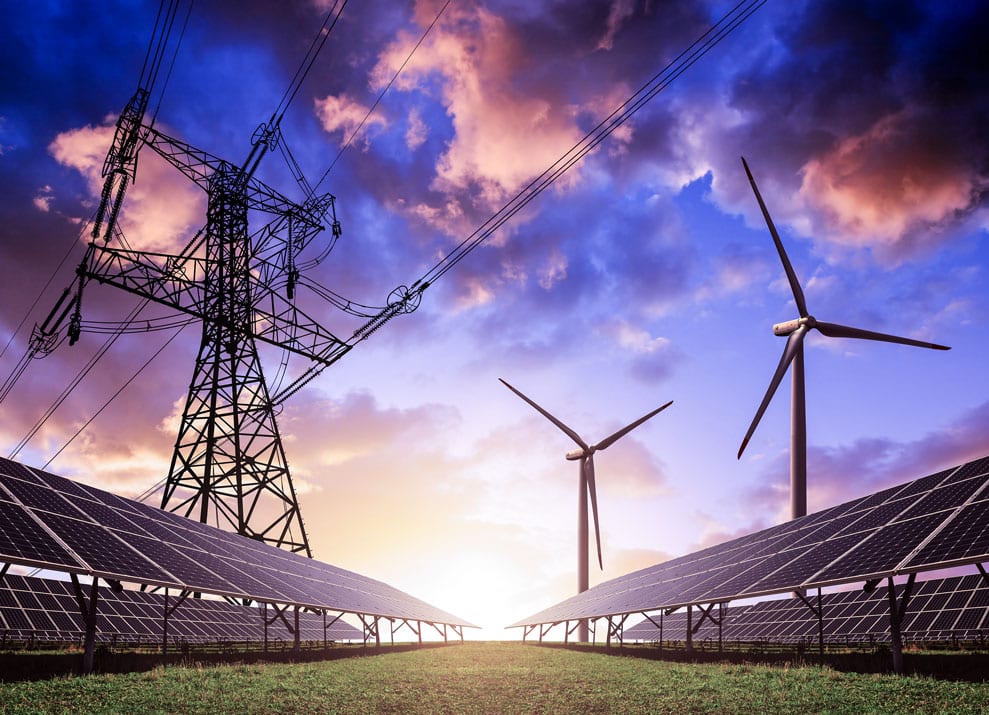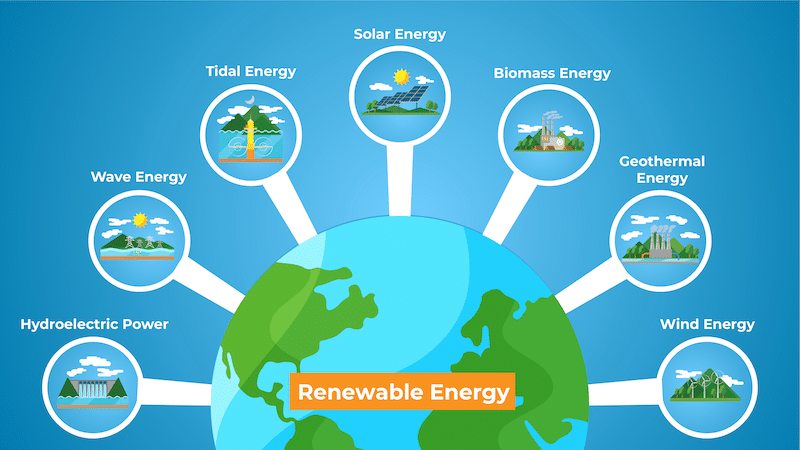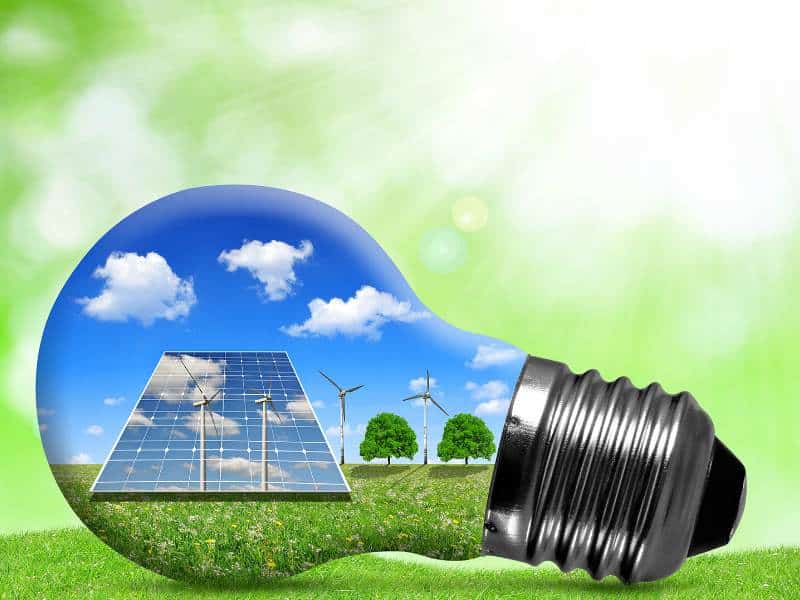Renewable energy stands at the forefront of a global movement towards a more sustainable future. The shift towards renewable energy offers hope in an era where traditional energy sources have led to significant environmental challenges. This article delves into the various facets of renewable energy, exploring its rise, types, environmental impact, and economic implications. It aims to provide a comprehensive understanding of why renewable energy is not just an alternative but a necessity for a sustainable future. As you journey through renewable energy, its transformative power becomes evident, offering a roadmap toward a cleaner, more sustainable, and economically viable future.
Contents
- 1 The Rise of Renewable Energy
- 2 Types of Renewable Energy Sources
- 3 Environmental Impact of Renewable Energy
- 4 Economic Implications of Renewable Energy
- 5 Technological Innovations in Renewable Energy
- 6 Challenges and Limitations of Renewable Energy
- 7 Global Policies and Incentives for Renewable Energy
- 8 The Role of Individuals and Businesses in Promoting Renewable Energy
- 9 The Bottom Line
The Rise of Renewable Energy

Renewable energy has experienced unprecedented growth over the past decade, marking a significant shift in global energy dynamics. This surge is primarily fueled by the increasing awareness of climate change and the urgent need to reduce greenhouse gas emissions. Governments and private sectors recognize the long-term benefits of investing in renewable energy sources, leading to substantial financial and policy support. This support has not only increased the accessibility of renewable energy but also driven innovation, making it a competitive alternative to fossil fuels.
The adoption of renewable energy is reshaping the global energy market. Traditional energy giants invest heavily in renewable sources, signifying a major shift in industry focus and strategy. This transition is bolstered by technological advancements that have made renewable energy more efficient and cost-effective. Furthermore, public demand for cleaner energy solutions has spurred a cultural shift, making renewable energy a mainstream choice for consumers and businesses.
Types of Renewable Energy Sources

Renewable energy is diverse, encompassing various sources with unique characteristics and benefits. Solar power, one of the most recognized forms, harnesses energy from the sun using photovoltaic cells. Advances in solar technology have dramatically increased its efficiency and reduced costs, making it a popular choice for residential and commercial applications. Solar energy’s versatility and scalability make it a worldwide cornerstone of renewable energy strategies.
Wind energy is another significant contributor to the renewable sector. Onshore and offshore wind farms use wind power to generate electricity. This form of energy is particularly prevalent in regions with consistent wind patterns, providing a reliable and clean energy source. Wind turbines have evolved considerably, becoming more efficient and less intrusive, making wind energy a powerful player in the quest for renewable sources.
Environmental Impact of Renewable Energy

The environmental benefits of renewable energy are profound. Unlike fossil fuels, renewable sources produce little to no greenhouse gas emissions, making them key to combating climate change. The shift to renewables has a cascading effect on reducing air and water pollution, major concerns with coal and oil-based energy production. This cleaner energy production benefits the environment and improves public health by reducing pollution-related illnesses.
Moreover, renewable energy sources are largely sustainable, meaning they replenish naturally and have a lower impact on ecosystems. While there are environmental considerations in producing and implementing renewable technologies, they are significantly less damaging than the extraction and use of fossil fuels. This aspect of renewable energy aligns with the broader goals of environmental conservation and biodiversity protection, further underscoring its importance in the global effort to curb environmental degradation.
Economic Implications of Renewable Energy

The economic landscape of renewable energy is dynamic and promising. Renewable energy technologies face high costs, but recent advancements have dramatically reduced them, making them competitive or cheaper than traditional energy sources. This cost reduction drives widespread adoption, creating a robust market for renewable energy technologies and services.
Renewable energy is also a catalyst for job creation and economic growth. The sector demands a diverse range of skills for installation, maintenance, and innovation, creating numerous jobs. Additionally, countries investing in renewable energy reduce their dependence on imported fossil fuels, enhancing energy security and economic stability. The economic potential of renewable energy extends beyond just energy production; it is a key driver of sustainable economic development.
Technological Innovations in Renewable Energy

The technological advancements in renewable energy have been pivotal in its widespread adoption and efficiency. Breakthroughs in materials science have led to more efficient solar panels and wind turbines, while advancements in energy storage technologies like batteries are solving the issue of intermittency. These innovations are making renewable energy more reliable and accessible to a broader range of applications and locations.
Integrating renewable energy with emerging technologies such as smart grids and the Internet of Things (IoT) revolutionizes how energy is distributed and managed. Smart grids facilitate the efficient use of renewable energy by balancing supply and demand in real time, while IoT applications enable precise monitoring and control of energy systems. These technological integrations are essential in creating a resilient and flexible energy infrastructure that can fully leverage the benefits of renewable sources.
Challenges and Limitations of Renewable Energy

Despite its numerous advantages, renewable energy faces challenges and limitations that must be addressed. One major challenge is the intermittent nature of solar and wind energy sources, which depend on weather conditions. This intermittency can lead to reliability issues in energy supply, necessitating the development of effective energy storage solutions and grid management strategies.
Geographical limitations also pose a challenge, as not all regions are equally suited for all types of renewable energy. For instance, solar power is less effective in regions with low sunlight, while wind energy requires specific wind conditions. The initial investment for renewable energy infrastructure can also be high, although long-term savings and technological advancements increasingly offset this.
Global Policies and Incentives for Renewable Energy

Government policies and incentives play a crucial role in adopting and developing renewable energy. Many countries have implemented subsidies, tax incentives, and feed-in tariffs to encourage investment in renewable energy. These policies make renewable energy more financially viable and signal a commitment to a sustainable energy future.
International agreements and collaborations, such as the Paris Agreement, also foster a global shift towards renewable energy. These agreements set targets for reducing greenhouse gas emissions and promote cooperation in developing and sharing renewable energy technologies. Case studies from around the world demonstrate the positive impact of these policies in accelerating the adoption of renewable energy and reducing reliance on fossil fuels.
The Role of Individuals and Businesses in Promoting Renewable Energy

Individuals and businesses have a significant role in the transition to renewable energy. Consumers can influence the market by choosing renewable energy options for their homes and advocating for sustainable practices. On the other hand, businesses can invest in renewable energy for their operations, reducing their carbon footprint and often resulting in long-term financial savings.
Innovative business models, such as community solar projects and corporate power purchase agreements, enable wider access to renewable energy. These models allow individuals and businesses to invest in or directly purchase renewable energy, even if they cannot install renewable energy systems on their properties. This collective action is crucial in driving demand and investment in renewable energy technologies.
The Bottom Line
The journey through the realms of renewable energy highlights its undeniable power and potential to revolutionize our energy landscape. As we confront the challenges of climate change and environmental degradation, renewable energy emerges as a beacon of hope, offering a sustainable and viable solution. The transition to renewable sources is not just a technological or economic shift; it represents a fundamental change in how we interact with our planet and its resources. The collective efforts of governments, businesses, and individuals will be pivotal in harnessing the full potential of renewable energy. Embracing this change is imperative for a sustainable future, and the time to act is now.